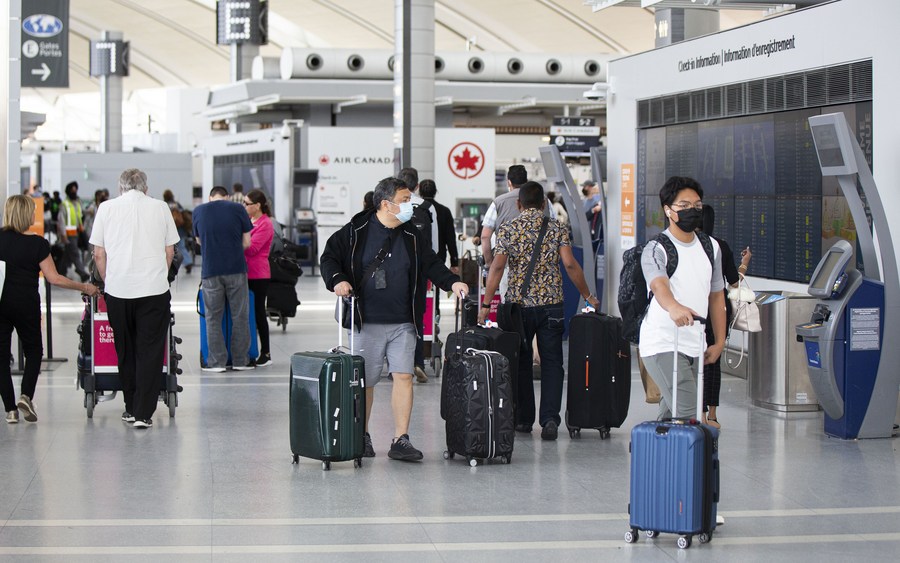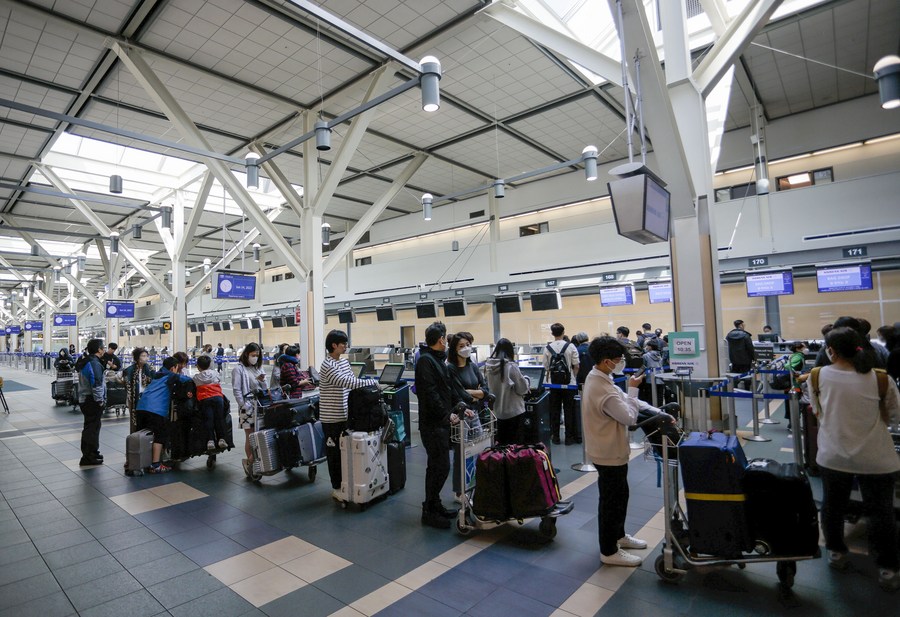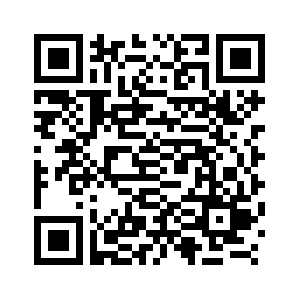
Travellers are seen at the Toronto Pearson International Airport in Mississauga, Ontario, Canada, on June 20, 2022. (Photo by Zou Zheng/Xinhua)
According to the news release, the pause of mandatory random testing will continue at all airports until mid-July, for travellers who qualify as fully vaccinated. However, mandatory random testing continues at land border points of entry, with no changes.
OTTAWA, June 29 (Xinhua) -- The federal government of Canada is extending current COVID-19 border measures for travellers entering the country, the Public Health Agency of Canada (PHAC) announced Wednesday.
Requirements for travellers arriving to Canada are expected to remain in effect until at least Sept. 30, 2022, PHAC said in a news release.
"As we move into the next phase of our COVID-19 response, it is important to remember that the pandemic is not over. We must continue to do all that we can to keep ourselves and others safe from the virus. Canada's border measures will remain flexible and adaptable, guided by science and prudence," said Minister of Health Jean-Yves Duclos.
According to the news release, the pause of mandatory random testing will continue at all airports until mid-July, for travellers who qualify as fully vaccinated. The pause was put in place on June 11, and is allowing airports to focus on streamlining their operations, while the government moves forward with its planned move of COVID-19 testing for air travellers outside of airports to select test provider stores, pharmacies, or by virtual appointment.
Moving testing outside of airports will allow Canada to adjust to increased traveller volumes while still being able to monitor and quickly respond to new variants of concern, or changes to the epidemiological situation, PHAC said, adding that border testing is an important tool in Canada's detection and surveillance of COVID-19 and has been essential in helping slow the spread of the virus.

Travellers line up at the Vancouver International Airport in Richmond, British Columbia, Canada, on June 14, 2022. (Photo by Liang Sen/Xinhua)
Data from the testing program is used to understand the current level and trends of importation of COVID-19 into Canada. Border testing also allows for the detection and identification of new COVID-19 variants of concern that could pose a significant risk to the health and safety of Canadians. In addition, this data has and continues to inform the government's safe easing of border measures, PHAC said.
Mandatory random testing continues at land border points of entry, with no changes. Travellers who do not qualify as fully vaccinated, unless exempt, will continue to test on Day 1 and Day 8 of their 14-day quarantine, PHAC said. ■












